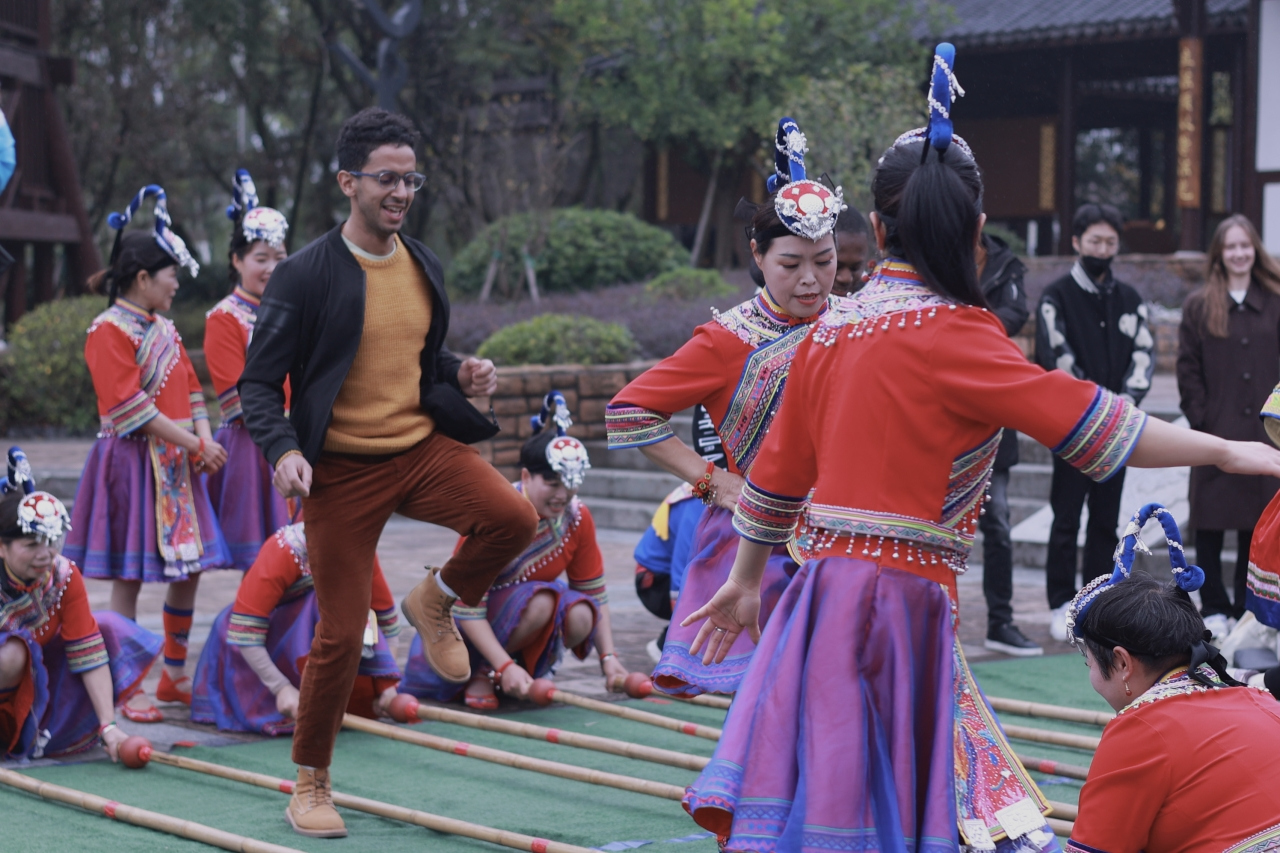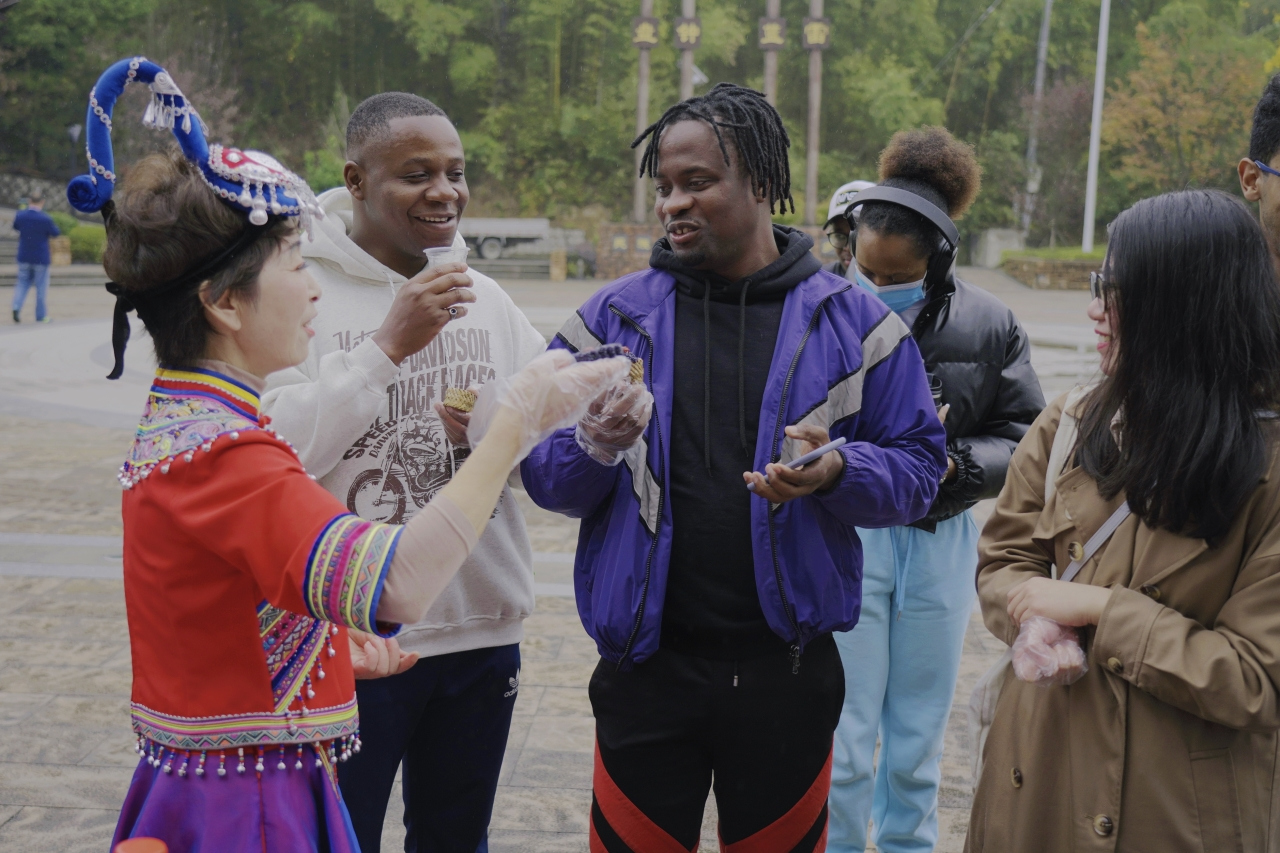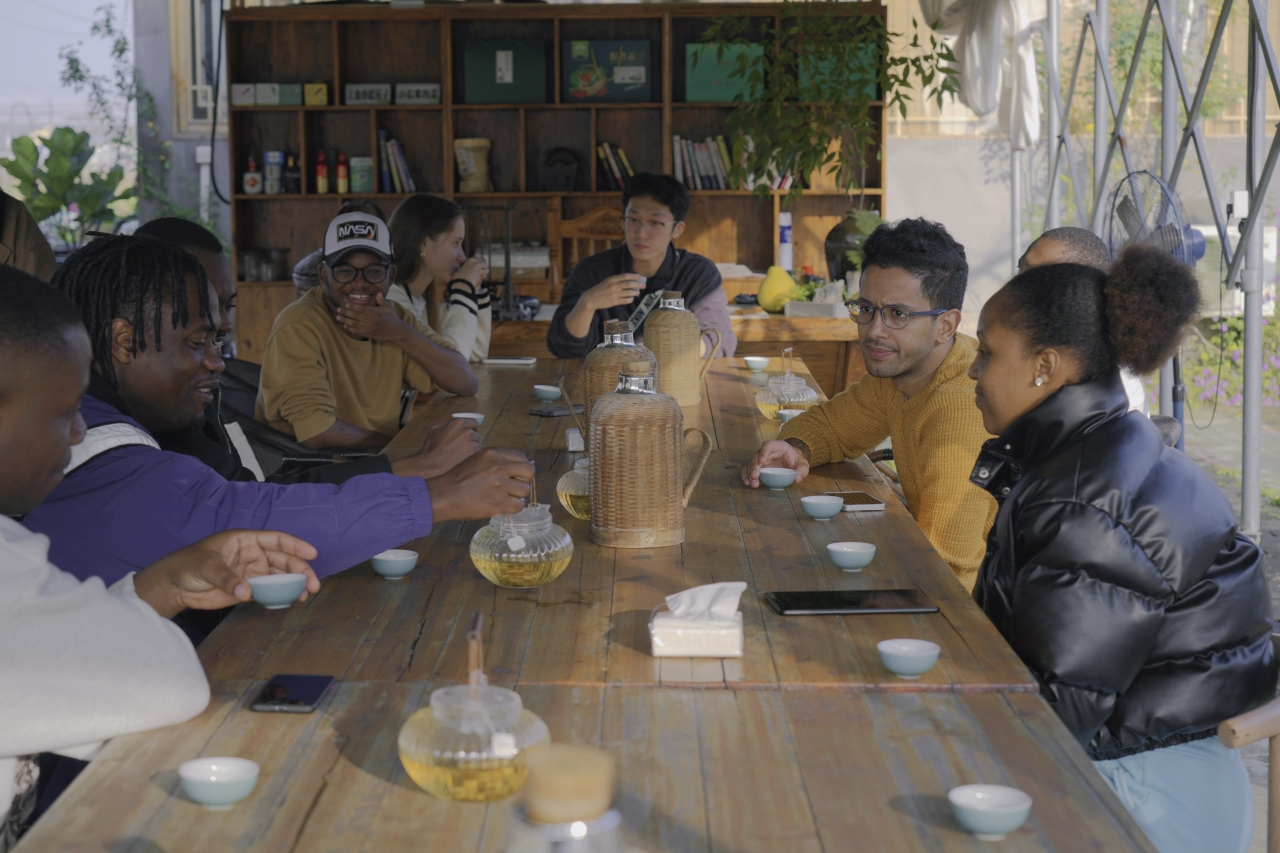My name is Khalid Ibrahim Jibia and I study at the Zhejiang University of Science and Technology. Chinese are one of the most hospitable, resourceful, and respectful people I’ve met. My university organized an excursion as a learning experience and I had the honour of participating. The Shuangjiang Village, of Xindeng town, Fuyang District, Hangzhou has left an impression on me and I intend to go back and enjoy the beautiful sceneries and quiet life.

International students experience the bamboo dance at the Shuangjiang village
The first stop was the Shuangjiang Village. Thirty percent of the villagers are the ‘She’ (畲) people, one of the 56 ethnic groups in China. The She people wore bright red dresses during festivals and enjoyed singing and dancing which I enjoyed joining in. We were also offered the local snack 乌米饭 which was an absolute delicacy. The villagers are very welcoming and hospitable. We have been invited to spend our holidays there and I believe that it will be a very relaxing experience.

Students try the "Wu Mi Fan"(乌米饭), a type of purple-coloured glutinous rice
We had the honour of meeting with a representative of the local government. This made us know more about the projects that are being established in the village, the provincial national revitalization project "畲香美寨、诗画双江". The project has improved the area's standard of living and increased the villages' disposable income. This was done by developing the area's agricultural, local food and tourism industries. I was pleased to learn that the 乌米饭 was being manufactured locally.

Students taste the osmanthus Longjing tea at a local ecological park
The next stop was the ShangShan Village and it was a sight. The architecture was simply amazing. At first, I couldn’t believe that I was in a village. This was because, in my home country, such buildings were mostly found in big cities. The famous Chinese statement: "要想富先修路" is one that needs to be embraced by a lot more countries. Investing in public infrastructure has been one of China’s main goals for the past decades. This made more services and amenities more accessible to the general public. It has made way for more economic growth and poverty reduction, increasing the living standards for average citizens.
Students take a group photo with the local people
The surrounding was refreshing. It had open fields and quiet surroundings, occasionally interrupted by cute barking coming from the dogs in the area. Time seemed to move slower and it was the perfect place to free your mind from daily struggles.
Visiting these villages showed me how much Chinese respect each other across different ethnic minorities and the importance of preserving their cultures and shared history. For example, the local government in Shuangjiang promotes cultural inheritance through festivals, and in ShangShan a museum was made to celebrate its history and showcase the stages of development the village went through.
This experience has made me further appreciate the developments that the local governments and the people have jointly made to ensure a better future for them and for generations to come.
Editor: Ye Ke